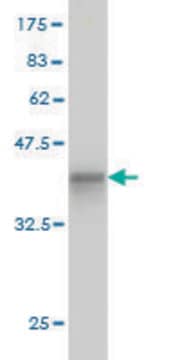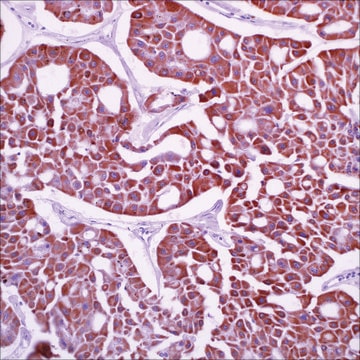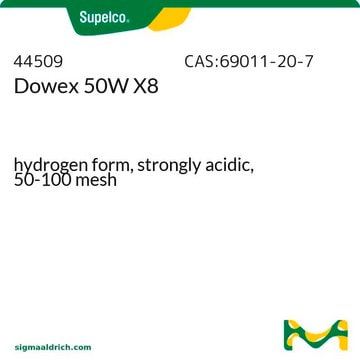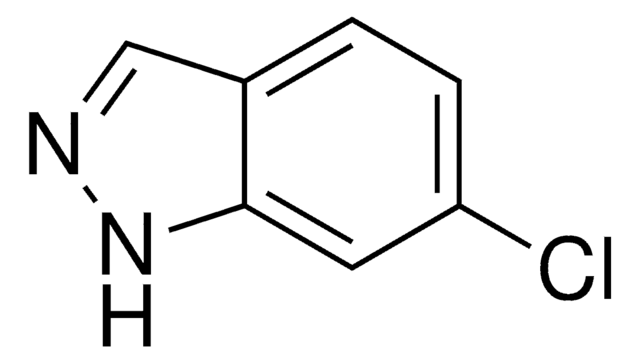SAB4200659
Monoclonal Anti-Glucokinase (GCK) antibody produced in mouse
clone GCK-20, purified from hybridoma cell culture
Synonym(s):
FGQTL3, GK, GLK, HHF3, HK4, HKIV, HXKP, LGLK, MODY2, glucokinase (hexokinase 4)
About This Item
Recommended Products
biological source
mouse
antibody form
purified immunoglobulin
antibody product type
primary antibodies
clone
GCK-20, monoclonal
form
buffered aqueous solution
mol wt
~50 kDa
species reactivity
human
concentration
~1 mg/mL
technique(s)
flow cytometry: 10-20 μg/test using A549 cells
immunoblotting: 1.25-2.5 μg/mL using whole extract of HepG2 cells.
immunohistochemistry: suitable
immunoprecipitation (IP): suitable
isotype
IgG1
UniProt accession no.
shipped in
dry ice
storage temp.
−20°C
target post-translational modification
unmodified
Gene Information
human ... GCK(2645)
General description
Immunogen
Biochem/physiol Actions
Physical form
Disclaimer
Not finding the right product?
Try our Product Selector Tool.
Storage Class
10 - Combustible liquids
wgk_germany
WGK 1
flash_point_f
Not applicable
flash_point_c
Not applicable
Choose from one of the most recent versions:
Certificates of Analysis (COA)
Don't see the Right Version?
If you require a particular version, you can look up a specific certificate by the Lot or Batch number.
Already Own This Product?
Find documentation for the products that you have recently purchased in the Document Library.
Active Filters
Our team of scientists has experience in all areas of research including Life Science, Material Science, Chemical Synthesis, Chromatography, Analytical and many others.
Contact Technical Service








